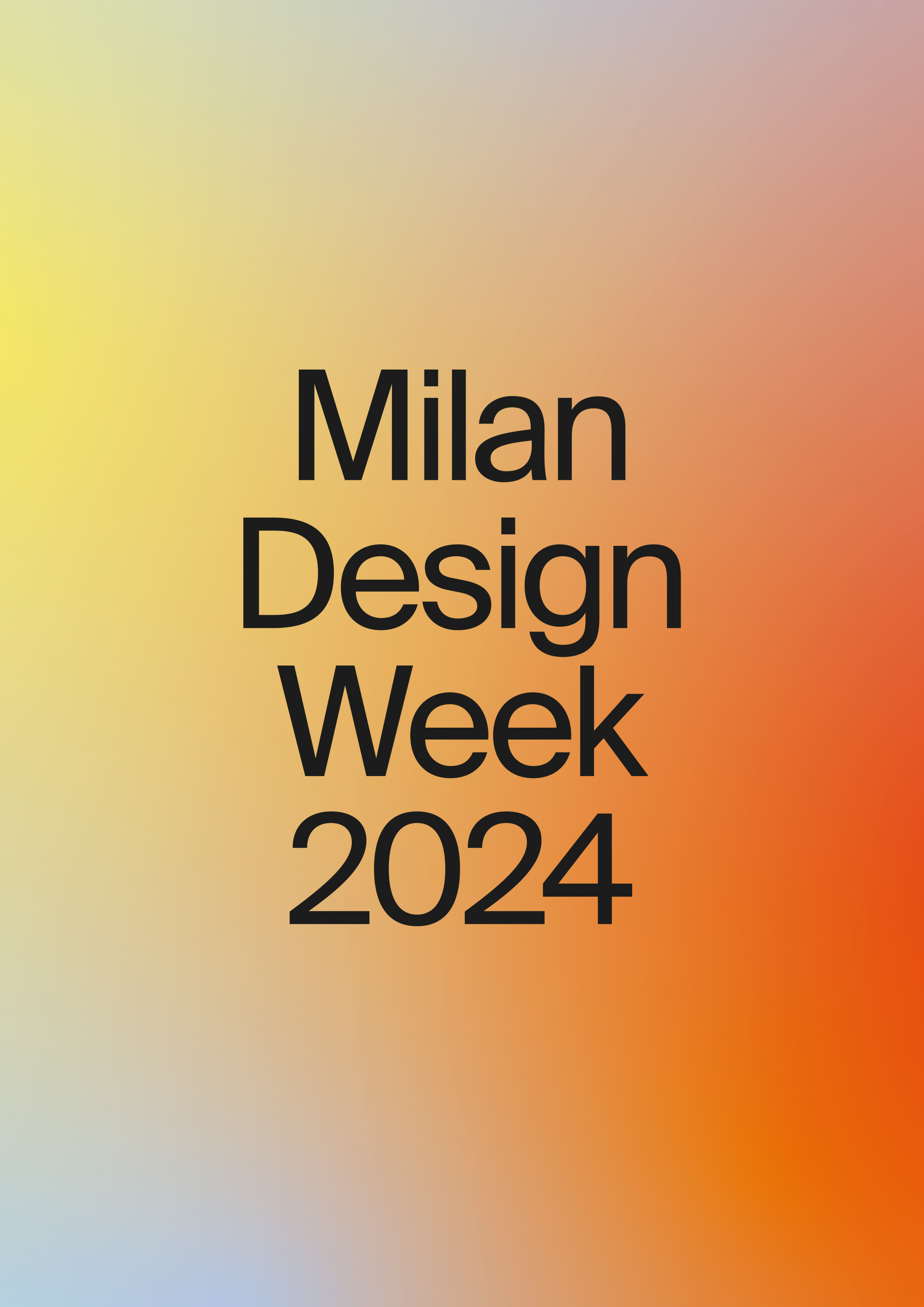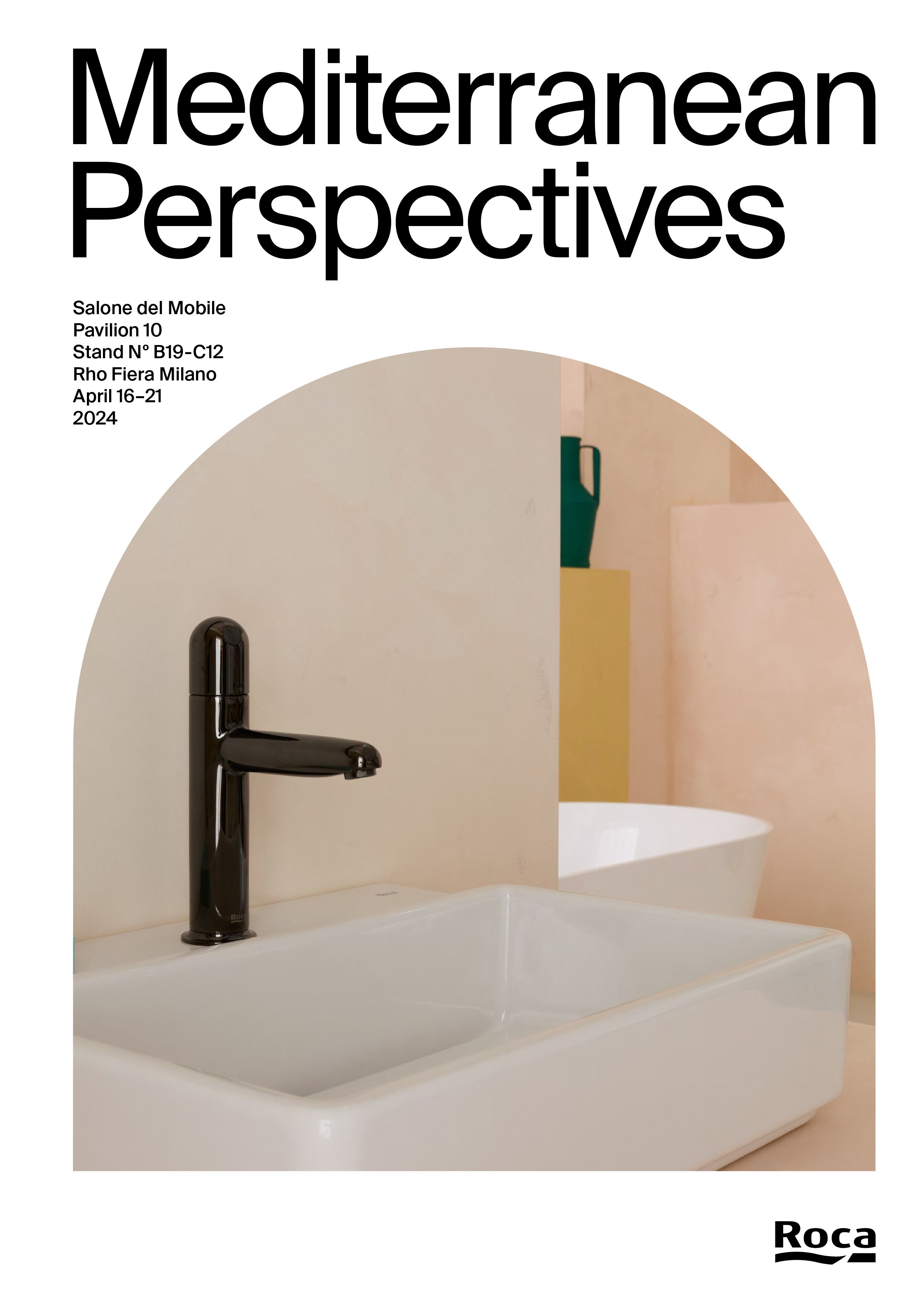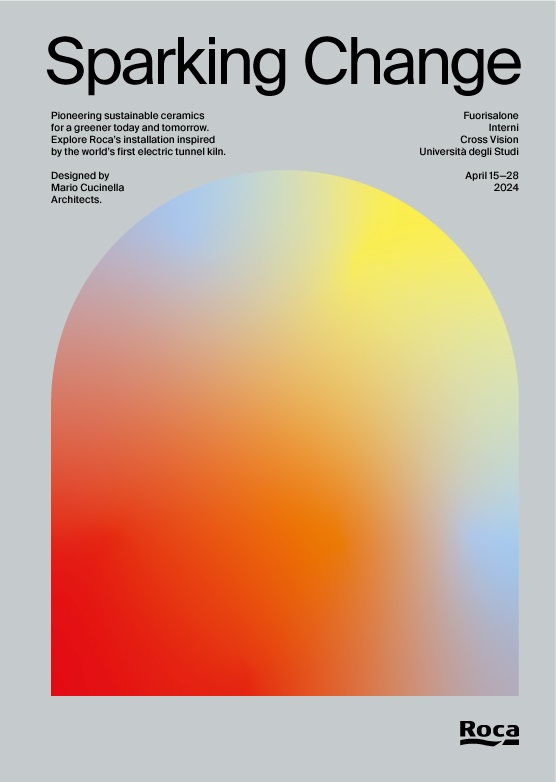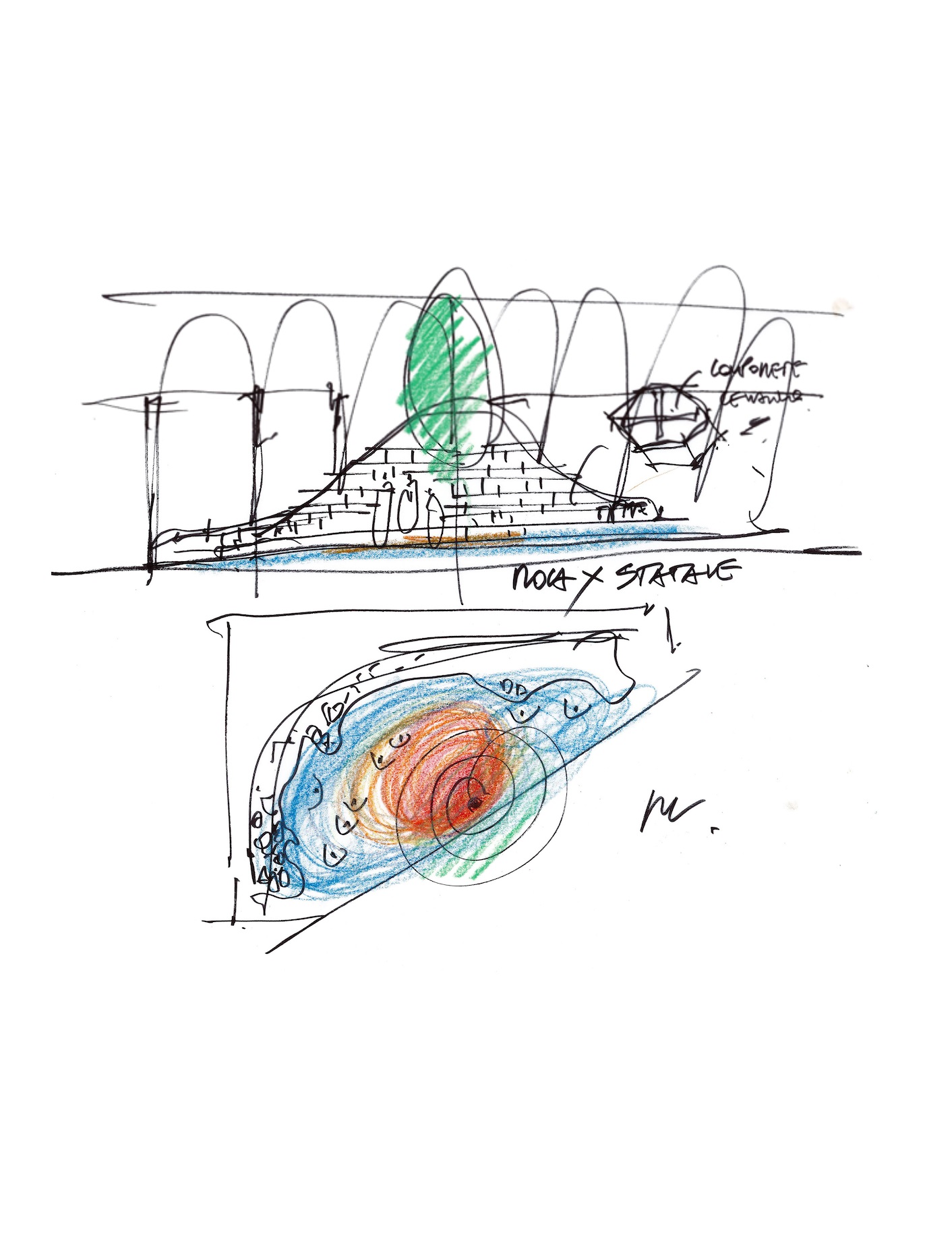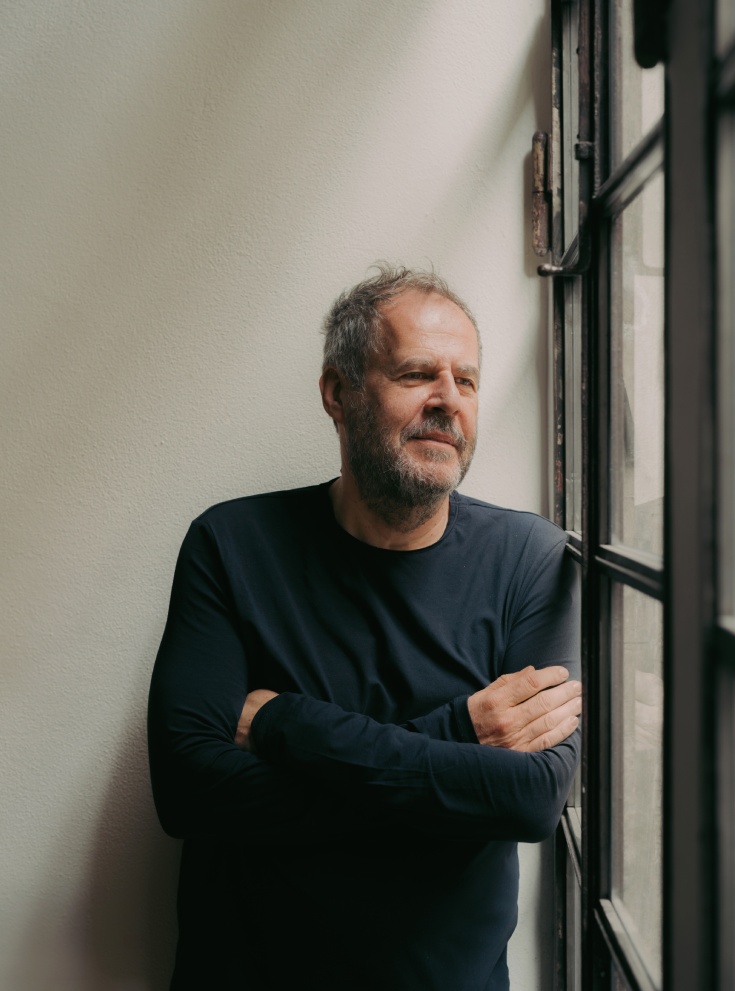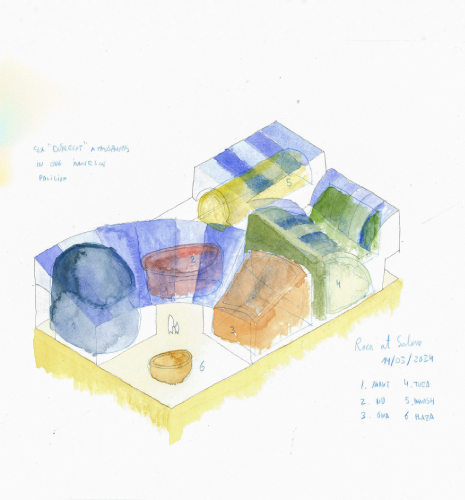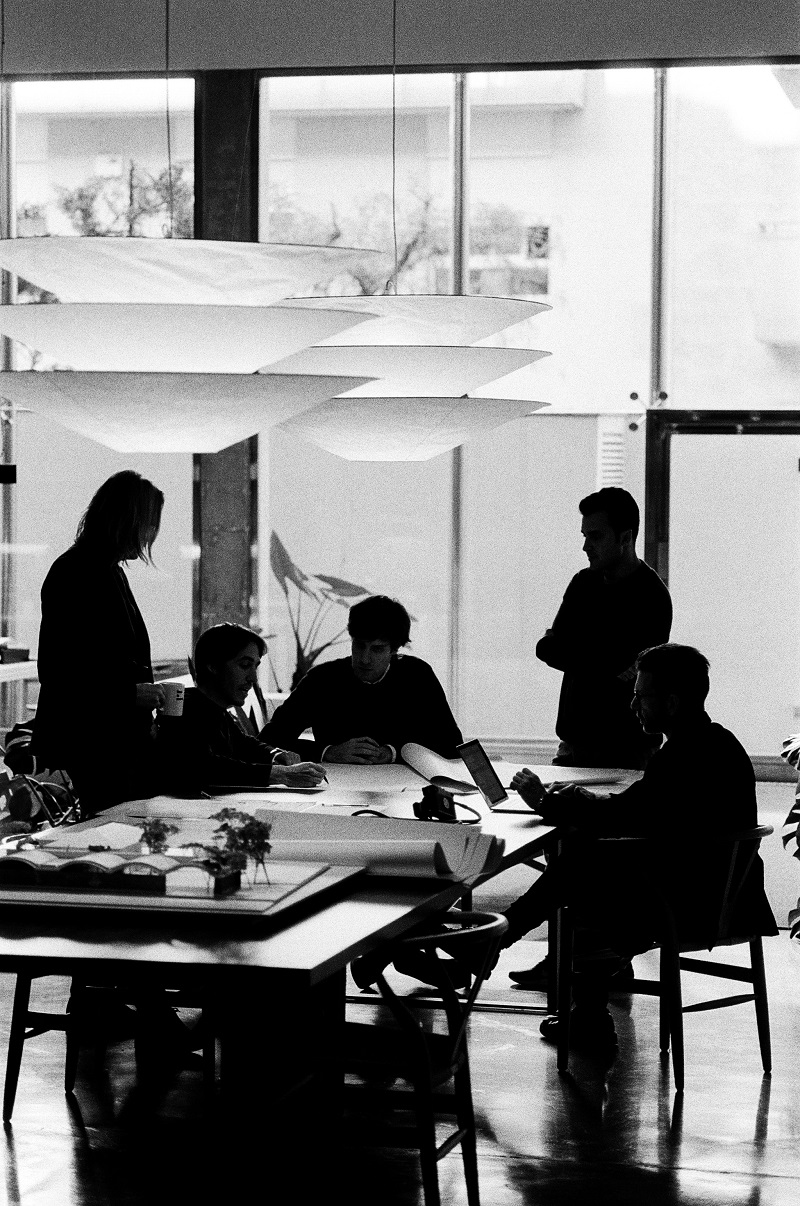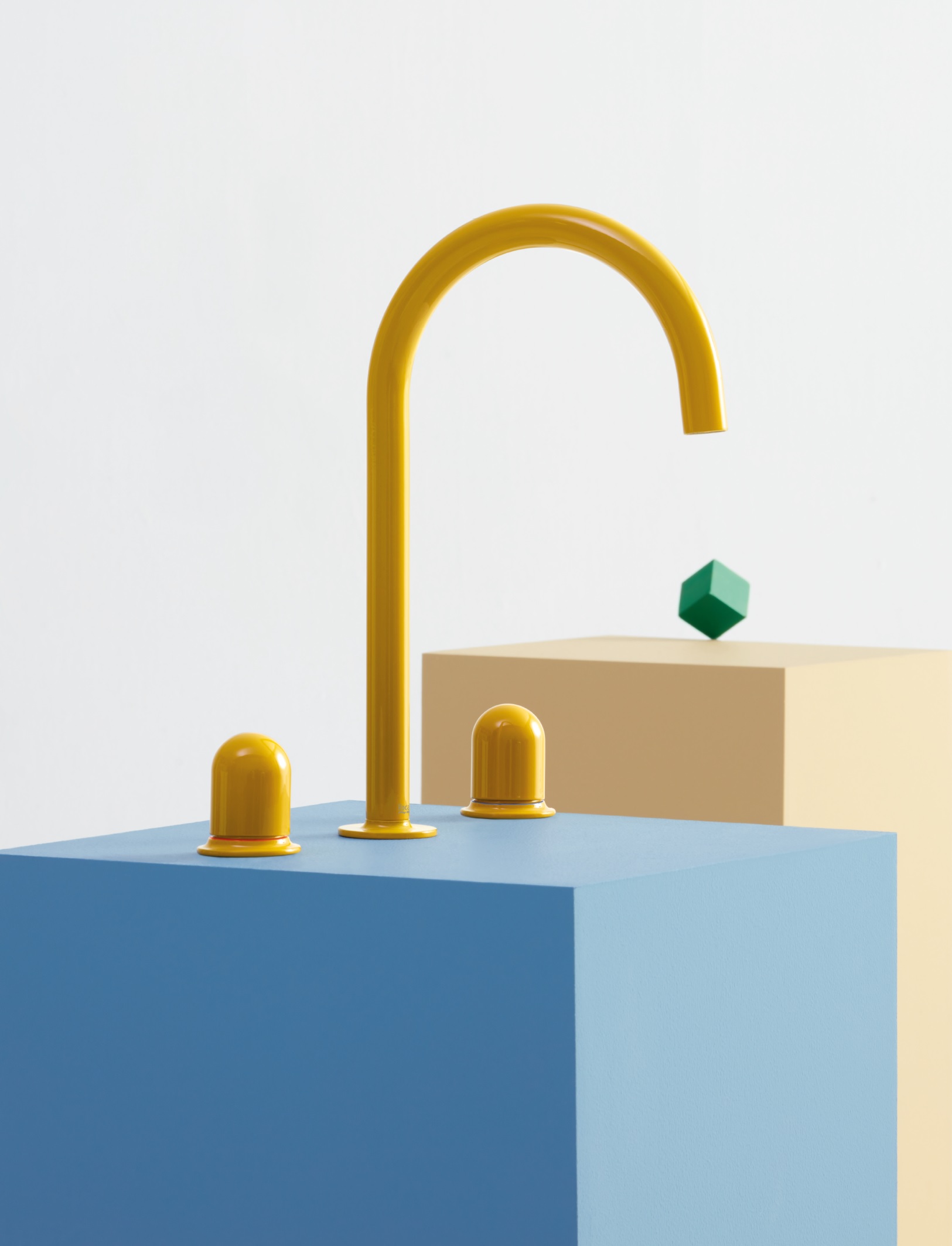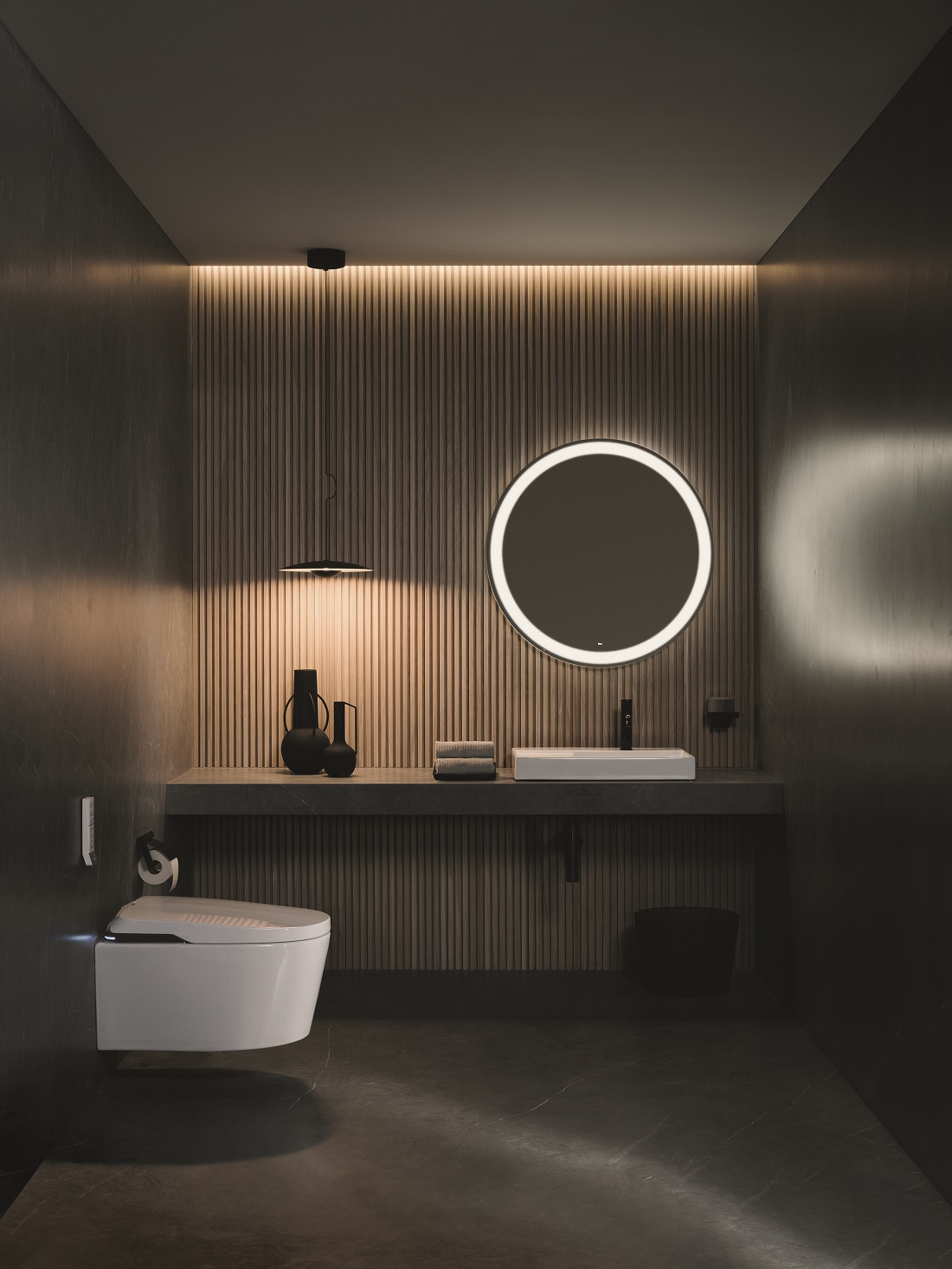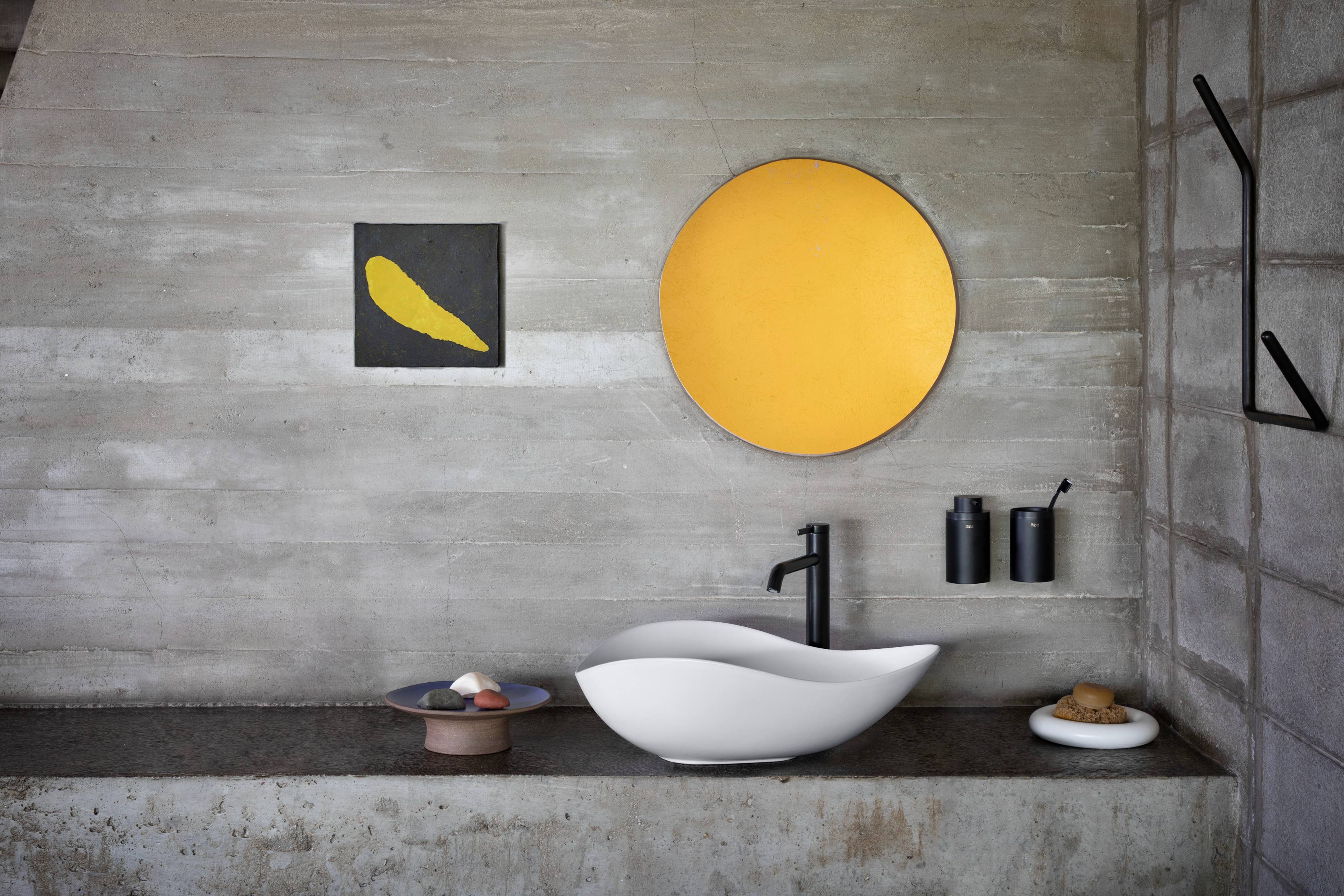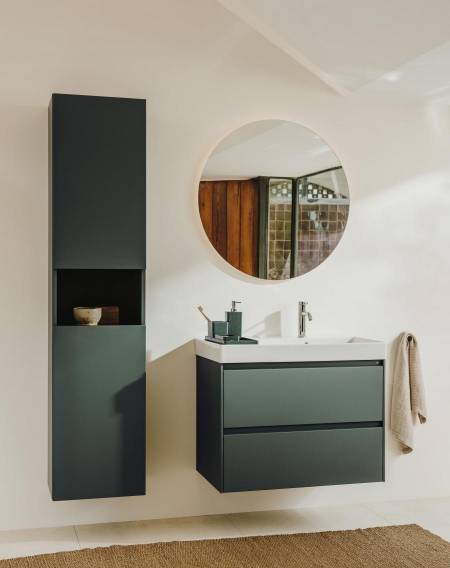Nestled within the bustling International Bathroom Exhibition, Roca’s pavilion stands out with a geometric design that is reminiscent of the Mediterranean and closely linked to Barcelona architecture. Designed by Barcelona-based architecture firm, Mesura, ‘Mediterranean Perspectives’ is an introverted design that opens up via a central plaza, inviting visitors to enter and discover the interior.
"Our aim is to provide an immersive experience for visitors," says Benjamin Iborra of Mesura. "We strive to create a memorable experience that goes beyond the ordinary, inviting guests to explore the different products and collections on display, and also gain an understanding of Roca’s values and heritage."
Geometry is key in the design of this pavilion, serving a dual purpose. From the exterior, it represents a return to Roca’s origins and the character of Barcelona. Once inside, the variety of geometries creates a unique atmosphere and interior volume, with different capsules for every collection, each with its own atmosphere, geometry, and materials.
Materiality is a crucial factor in the design of this ephemeral space. In keeping with Roca’s commitment to sustainability, Mesura used reclaimed wood from previous projects and shutters from last year’s ISH fair in Frankfurt to reduce environmental impact of this stand.
Salone del Mobile Pavilion 10 Stand Nº B19-C12 Rho Fiera Milano April 16—21
